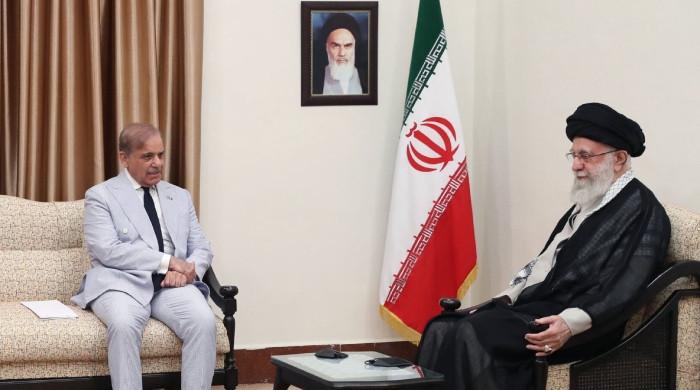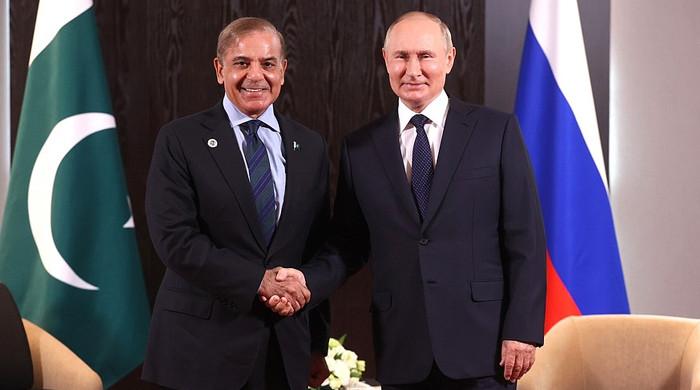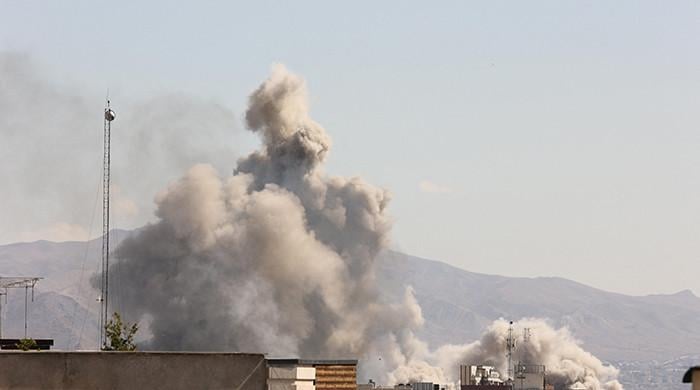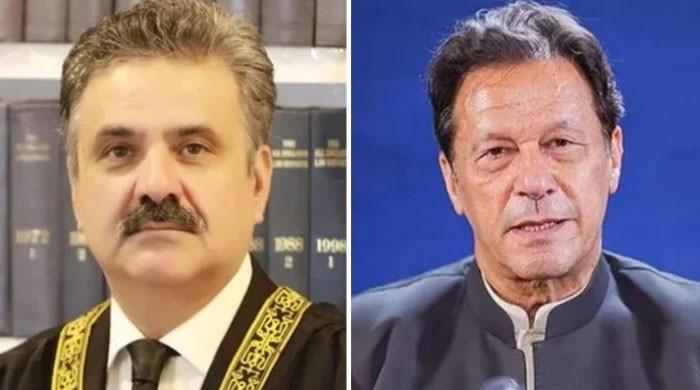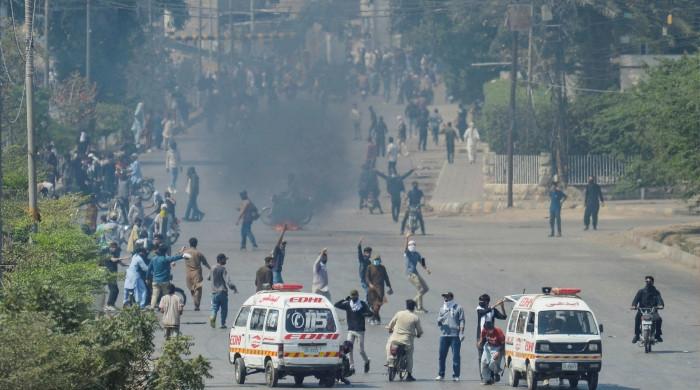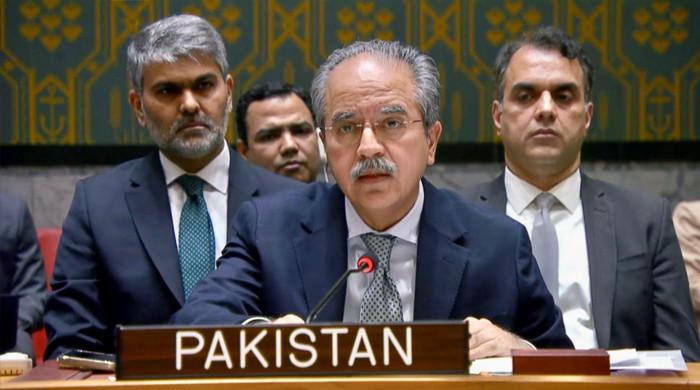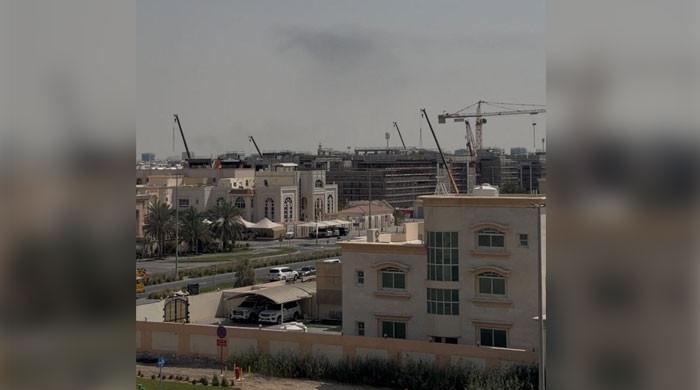Senate elections: CJP disappointed over PPP, PML-N reneging on open ballot agreement
Advocate General of Sindh recommends Supreme Court distance itself from politics, let ECP fulfil its responsibilities
February 18, 2021
- Punjab Advocate General says lawmaker can't be disqualified for voting against party line
- Court should steer clear of questions of a political nature, says advocate general Sindh
- No proof that introducing open balloting would eliminate horse-trading, says Advocate General Sindh
ISLAMABAD: Chief Justice Gulzar Ahmed on Thursday expressed disappointment over the PPP and the PML-N going against an agreement signed between them — the Charter of Democracy — which calls for an end to secret balloting in Senate elections.
A five-member larger bench headed by Chief Justice Gulzar Ahmed and comprising Justice Mushir Alam, Justice Umar Ata Bandial, Justice Ijaz-ul-Ahsan and Justice Yahya Afridi was hearing the presidential reference seeking an opinion on open balloting for the upcoming Senate elections.
Read more: Bill for open ballot in Senate elections presented in parliament amid noisy session
During the hearing, the Advocate General of Punjab Ahmad Awais agreed with Attorney-General for Pakistan Khalid Jawed Khan's point of view that parliamentarians were bound by their party's code of discipline and in case of any violation, action can be taken against them.
Responding to a query of the chief justice, the advocate general said a lawmaker can be disqualified for either buying or selling votes but not for voting against the party's policy.
After the Punjab advocate general had concluded his arguments, the Advocate General of Sindh Sultan Talib ud Din presented his arguments, stating that everyone has heard about horse-trading but no one has ever produced any evidence to back it up.
Read more: In response to SC, Senate chairman backs open-ballot elections
"The court should steer clear of questions of a political nature," he said, adding that the Election Commission of Pakistan should instead be allowed to fulfil its responsibilities.
"The Supreme Court can only answer questions that are raised," said the Attorney General of Sindh, adding that it has an "advisory" role.
At this, the chief justice responded by saying that the Constitution is a political document and when the court interprets it, then it is carrying out a political task.
The Advocate General for Sindh said that there is no proof that introducing open balloting would eliminate horse-trading.
"We can not say whether open balloting will eliminate horse-trading but it is disappointing that the PPP and the PML-N have gone back on their earlier agreement," responded the chief justice.
"Both parties agreed to bring an end to the secret balloting method in the Charter of Democracy but now they are not implementing it," Justice Gulzar Ahmed said.
At this, the Attorney General of Sindh said that without amending Article 226, the wishes of the federal government cannot be fulfilled.
The advocate generals of Islamabad, Balochistan, Khyber Pakhtunkhwa and Punjab all supported the arguments presented by the Attorney-General for Pakistan.
Justice Gulzar Ahmed said that Article 63-A does not apply to the Senate elections whereas Article 59 does not mention secret balloting.
The hearing was postponed till Friday.
Ensuring fair elections is ECP's constitutional duty, says Supreme Court
A day earlier, the Supreme Court had been conducting the hearing of the presidential ordinance where it had grilled the chief election commissioner for not taking due action over horse-trading.
"The election commissioner should tell us how he plans to stop corrupt practices in the Senate elections," the chief justice had asked.
Read more: Ensuring fair elections is ECP's constitutional duty, says Supreme Court
Justice Ijaz ul Ahsan had observed that the Election Act does not mention corrupt practices specifically. "The word 'guard' has been used for political interference before and after elections, as well as corrupt practices," the judge had noted.
Justice Ahsan had said that guarding against corrupt practices in this context would mean that precautionary measures ought to be taken before the elections so that they are held in a transparent manner.
"Money and political interference are used in elections," noted Justice Ahsan. "The election commission should tell us how it plans on stopping such practices."
The chief election commissioner had responded by saying that the ECP does all it can under its jurisdiction to ensure that corrupt practices are thwarted. "Action is taken before and after elections, on grievances and complaints," said the election commissioner.
"Chief election commissioner sahab, you aren't understanding the depth of the problem," Justice Gulzar had responded. "The ECP is not an ordinary government department, it has a mandate," urged the chief justice.




